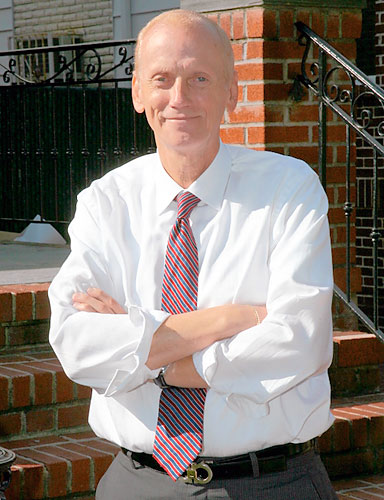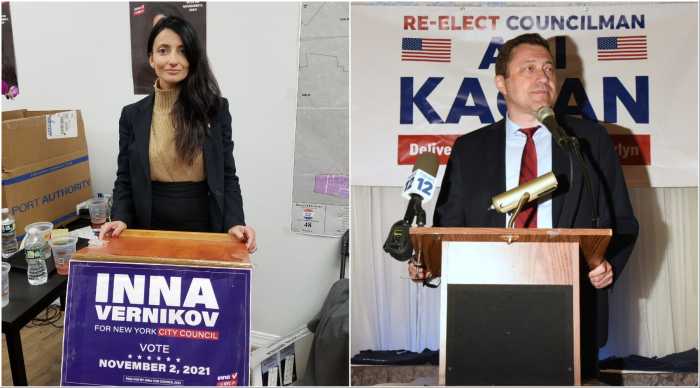The president of one of Manhattan Beach’s two battling civic groups is about to step down, but not before one last attempt to end the civil war that has torn the neighborhood apart for the past five years.
Manhattan Beach Community Group president Ira Zalcman says the last move he wants to make as chief executive is to bring the breakaway Manhattan Beach Neighborhood Association back into the fold.
He’d do so by amending to the Manhattan Beach Community Group’s bylaws, allowing four of the splinter group’s leaders to join the original civic’s board of directors immediately upon rejoining the group — bypassing the normally required two-year waiting period, which was the main factor preventing the rival faction from returning.
“It’s like playing chess, and it’s gonna be checkmate soon,” Zalcman told this paper. “They’ve got no moves left, but it’s been fun playing with them.”
Zalcman took his current leadership role in what was once Manhattan Beach’s only civic association after the bitter presidential election of 2008, when he defeated the incumbent Ronald Biondo — winning both the election and the subsequent lawsuit alleging election fraud, which was eventually dropped.
Barely two months after Zalcman assumed the presidency of the community group, Biondo, along with his allies Edmond Dweck and Alan Ditchek, broke off to start the rival Manhattan Beach Neighborhood Association.
The two groups have been at odds ever since and, while elected officials and community leaders have asked for peace, the rival organizations have indulged in a feud to rival the Hatfields and McCoys.
The biggest problem with having two opposing civics, according to Zalcman, is in communicating with city agencies including the Parks Department or the Department of Transportation — with one group saying one thing, the rival group saying something else, and nothing ever getting done.
“DOT loved it,” said Zalcman, “because it meant they didn’t have to do anything in Manhattan Beach.”
In fact, the downside of having two feuding neighborhood groups is just about the only thing the rival civics agree on.
“I’m not going to say having two civics is not a good thing, but its not the best thing,” said Dweck, a member of the Manhattan Neighborhood Association’s board of directors. “Especially with everything the city has been through since Sandy, the best effort we can make is to bring the two groups together.”
Zalcman says he’s determined to leave the groups in a position where they’d want to merge.
To that end, he’s crafted an amendment to the his group’s bylaws, allowing four of the Manhattan Beach Neighborhood Association’s leaders, namely Biondo, Dweck, Ditchek and Al Smaldone, to join the community group’s board of directors immediately. After a year as directors, the rejoining members would be eligible to run for officer positions within the civic association, according to Zalcman.
The proposed amendments are not a sure thing, but Zalcman is confident that his civic association will follow his lead when they vote on Wednesday during the group’s final meeting of the year — despite some folks who would rather keep the splinter group at arm’s length.
“Some people aren’t happy about this,” said Zalcman. “But they’re going along with me.”
If and when the vote goes through, Zalcman feels he’ll have left the rival faction with only two options — either merge with the community group, or appear petty and selfish.
“They don’t know how to deal with us, and we’ve got them boxed in,” said Zalcman. “They have no excuse not to come back, aside from ego and just not wanting to.”
But Dweck says that Zalcman’s deal, while sweet, isn’t quite sweet enough.
The neighborhood association director says that his group’s board of directors would be unlikely to accept anything less than instant officer positions in the reunified group, lest they lose the high-level contacts they’ve cultivated as well as their current leadership posts.
“They don’t want to wait a year [to be officers],” said Dweck. “We feel we’ve been seasoned enough, we’re on a first name basis with many of the elected officials, so we feel that nothing has been lost and we’ve developed a stronger position with the elected officials.”
“We feel that two groups becoming one is good,” Dweck added, “But we don’t want to give up so much of the work we’ve done and giving up our positions.”





















